Should We Continue the Space Program
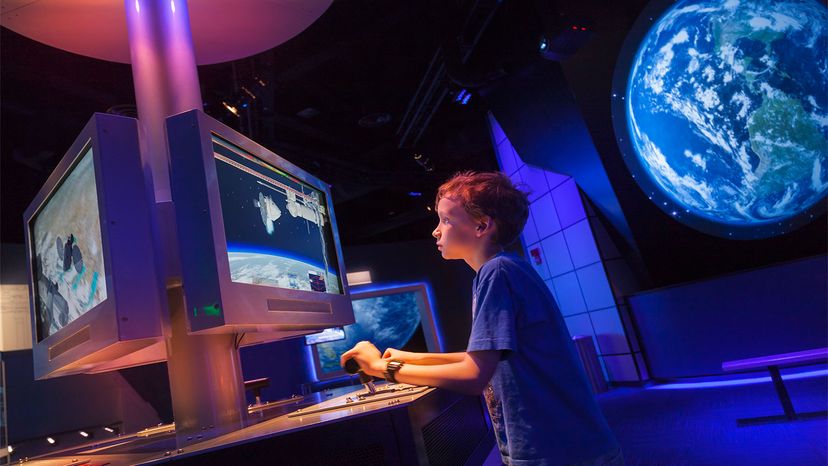
At the time of the moon landing in 1969, many people envisioned that by the beginning of the 21st century, space travel would become routine, and we would be visiting other planets in our solar system and perhaps even daring to venture into interstellar space.
That future didn't arrive as planned. In fact, humans haven't made it any deeper into space than when we landed the moon in the late 1960s and early 1970s, though we have operated a manned orbital outpost, the International Space Station, which has been continuously occupied for more than two decades [source: Howell]. NASA currently is planning to resume human missions to the moon in the mid-to-late 2020s, as a prelude to astronauts eventually traveling to Mars [source: Dvorsky].
We've also seen the rise of private space entrepreneurs such as Elon Musk, who has described his dream of building a rocket capable of reaching Mars and supporting a permanent human settlement there [source: Torchinsky]. And other countries are looking to reach Mars as well. China, for example, aims to send its astronauts to the Red Planet by 2033 [source: Kharpal].
But those who've long dreamed of humans becoming a truly spacefaring race argue that exploring space provides down-to-earth benefits in areas such as health, mining and security. And more inspirational benefits, too. Here are some of the most compelling arguments for continuing the exploration of space.
10: Protection From a Catastrophic Asteroid
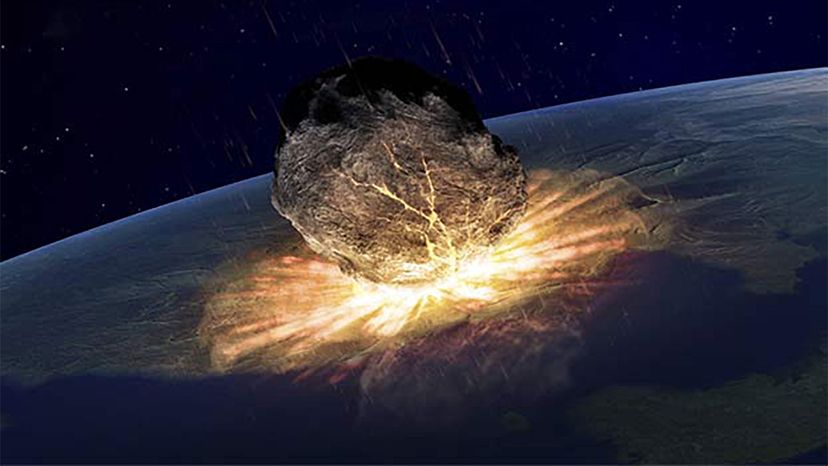
If we don't want to go the way of the dinosaurs someday, we need to protect ourselves against the threat of being hit by a big asteroid. According to NASA, typically about once every 10,000 years, a rocky or iron asteroid the size of a football field could smash into our planet's surface and possibly cause tidal waves big enough to inundate coastal areas.
But it's the real monsters — asteroids about 328 feet (100 meters) across or bigger — that we really have to fear. Such a collision would unleash a firestorm of heated debris and fill the atmosphere with sun-blocking dust, which would wipe out forests and farm fields and starve the human and animal life that it didn't immediately kill [sources: NASA, NSS].
That's why it's vital to develop a way to neutralize such a threat to Earth. NASA's Double Asteroid Redirection Test, set for launch in late September 2022, will be the first mission to demonstrate a technology called asteroid deflection by kinetic impactor. A robotic spacecraft will be crashed into the binary asteroid system Didymos, in an effort to show that it's possible to slightly alter the path of an asteroid. That would enable NASA to redirect potential threats to miss Earth [sources: DART, Mann].
9: It Will Lead to More Great Inventions

A very long list of gadgets, materials and processes originally were developed for the U.S. space program but found other applications back on Earth — so many that NASA has an office that looks for ways to repurpose space technology as products. We all know about freeze-dried food, but there are plenty of others. In the 1960s, for example, NASA scientists developed a plastic coated with a metallic reflecting agent. When used in a blanket, it reflects about 80 percent of a user's body heat back to him or her — an ability that helps accident victims and post-marathon runners to stay warm.
Another more obscure but valuable innovation is nitinol, a flexible but resilient alloy that was developed to enable satellites to spring open after being folded into a rocket. Today, orthodontists equip patients with braces made from the material [source: Independent].
According to NASA, other inventions spawned by the space program include CAT scans, LED lights, memory foam, freeze-dried food, shock absorbing materials used in artificial limbs, the computer mouse and portable computers, and a key nutritional ingredient in baby formula [source: JPL].
8: It Will Be Good for Your Health
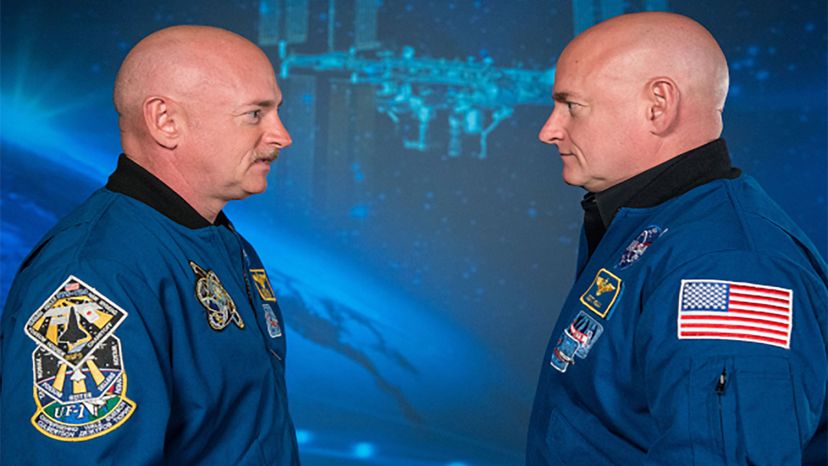
The International Space Station alone has generated scores of medical innovations with uses on Earth, such as a method for delivering cancer-fighting medication directly to tumors; gadgetry that a nurse can hold to perform ultrasounds and transmit the results to a doctor thousands of miles away; and a robotic arm that can perform delicate surgery inside an MRI machine.
NASA scientists, in an effort to protect astronauts from losing bone and muscle in the microgravity environment of space, also helped a pharmaceutical company to test Prolia, a drug that today helps protect elderly people from osteoporosis. Although mice and humans don't have identical physiology or biology, it made sense to test this drug on mice in space, since astronauts lose around 1.5 percent of their bone mineral density each month in microgravity, which correlates to the 1.5 percent yearly bone density loss of an elderly woman on Earth to osteoporosis [source: Kiger].
7: Space Exploration Is Inspirational
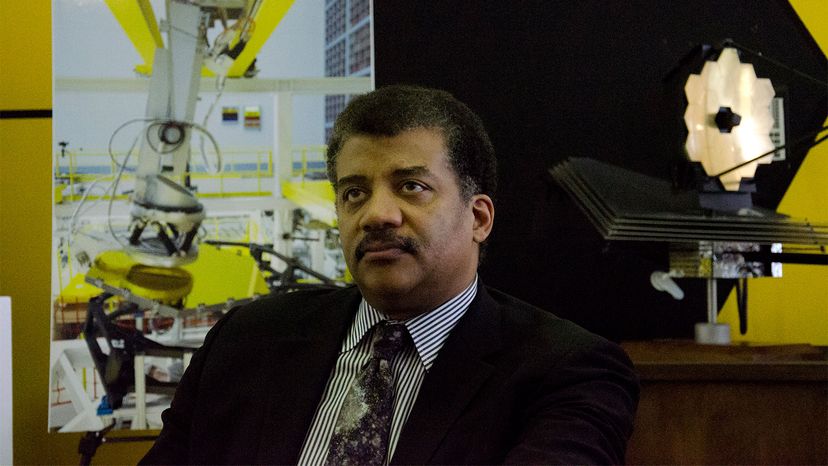
If we want a world in which our kids aspire to being great scientists and engineers instead of reality show hosts, rappers or Wall Street financial tycoons, having a great enterprise to attract and inspire them is crucial.
As astrophysicist, author and lecturer Neil deGrasse Tyson told National Public Radio in 2012, "I could stand in front of eighth graders and say, 'Who wants to be an aerospace engineer so you can design an airplane 20 percent more fuel-efficient than the one your parents flew?' That doesn't usually work. But if I say, 'Who wants to be an aerospace engineer to design the airplane that will navigate the rarefied atmosphere of Mars?' ... I'm getting the best students in the class." This still holds true today and inspiring kids will always be the key to future space exploration.
6: It's Important for National Security
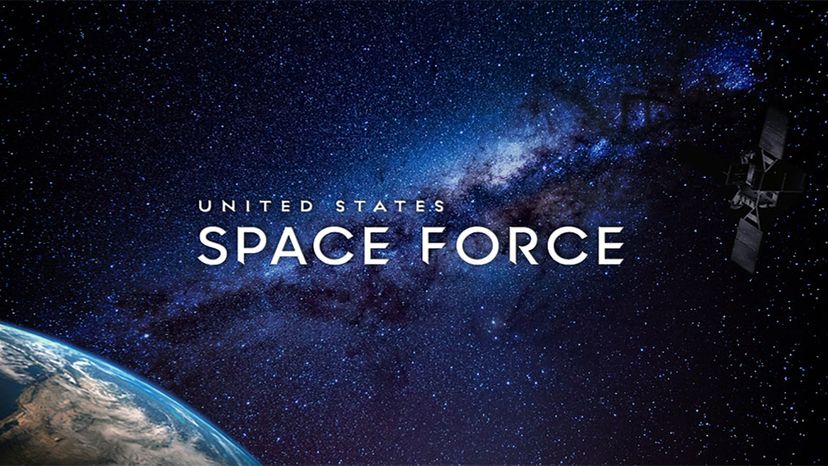
The U.S. needs to detect and prevent a hostile nation or terrorist group from deploying space-based weapons or attacking its navigational, communications and surveillance satellites. And while it and other major powers such as Russia and China are signatories of a 1967 treaty that forbids nations from claiming territory in space, it's not hard to think of examples of past treaties that were tossed aside when someone saw a benefit in doing so.
Even if the U.S. privatizes much of space exploration, it still wants to ensure that companies can mine the moon or asteroids without worrying that interlopers will usurp their claims or steal their production [source Minter]. That's why it's crucial to back up diplomacy with a NASA spacefaring capacity that could be converted to military use, if needed. In 2019, a law passed by Congress with bipartisan support created the U.S. Space Force, a new branch of the U.S. armed forces devoted to protecting U.S. interests in space [source: Space Force].
5: We Need Raw Materials From Space
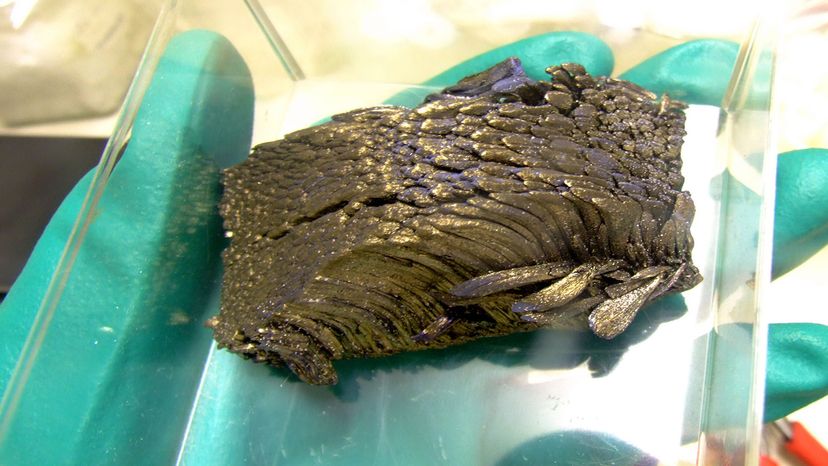
There's gold out there in the cosmos, and silver, platinum and other valuable substances, too [source: Letzter]. A lot of attention has been given to a private-sector venture that envisions mining operations on asteroids, but space miners wouldn't have to go that far to find riches.
The moon, for example, is a potentially lucrative source of helium-3, which is used for certain MRIs and a possible fuel for nuclear power plants. The moon also is believed to be a potential source of rare earth elements such as europium and tantalum, which are in high demand for use in electronics, solar panels and other advanced gadgetry [source: Ouellette].
4: Nations Can Work Together Peacefully
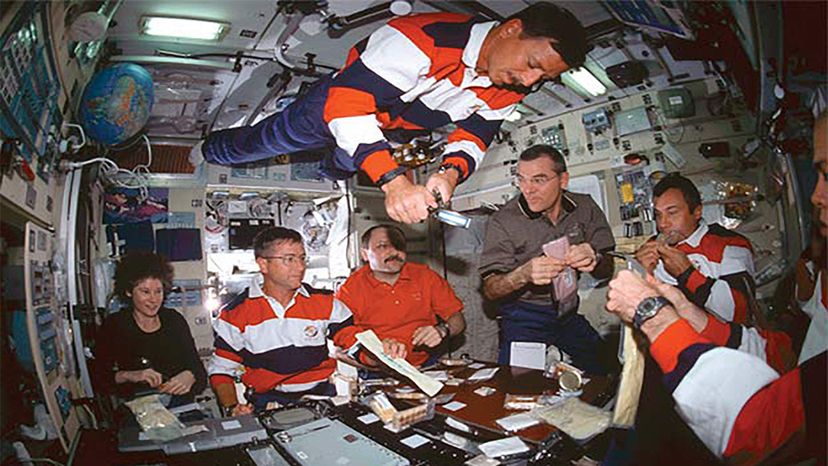
Earlier, we mentioned the ominous notion of international conflict in space. But it doesn't have to be that way, as evidenced by the cooperation of multiple nations on the International Space Station. And a U.S. space program could allow other countries, large and small, to join in their exploration efforts.
A 2018 paper from NASA points out the benefits of international cooperation. For one, the hefty costs could be spread around. For another, it could forge stronger diplomatic ties between nations such as the U.S. and India, and help create new jobs in both countries, for example.
In 2020, NASA awarded the first contracts to four companies to collect small amounts of lunar regolith, the loose rock and dust that sits atop the surface, when missions to the moon eventually resume in the 2020s. It could be the first step toward mining of raw materials from the moon. "Space resources are the fuel that will propel America and all of humanity to the stars," Mike Gold, NASA's then-acting administrator for international and interagency relations, explained at the time [source: NASA].
3: It Could Help Answer a Really Big Question
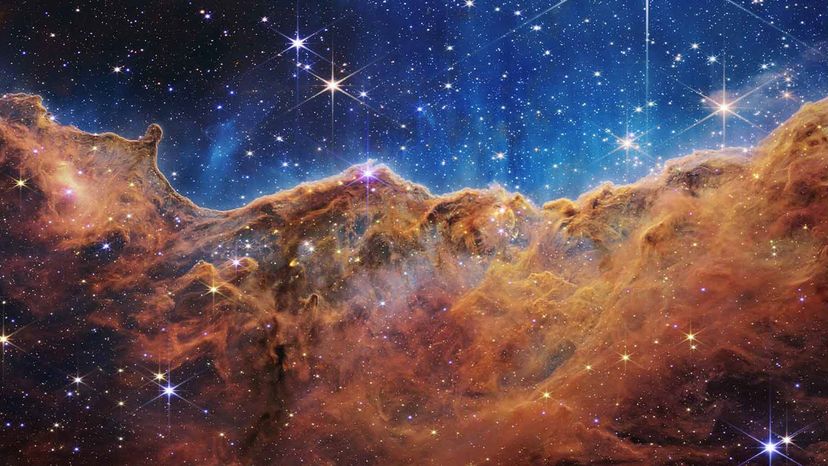
Nearly two-thirds of Americans (close to 65 percent) believe that intelligent life exists on other planets, according to a 2021 Pew Research Center survey. In general, the public does not view UFOs as a major threat to the country. When asked to think about U.S. national security, 51 percent of Americans say that UFOs are not a threat at all, and 36 percent believe they are a minor threat.
But so far, sweeps of the sky with Earth-based telescopes for signals that might be beacons from distant civilizations have proven fruitless, possibly because the Earth's atmosphere interferes with such messages reaching us. That's why searchers for extraterrestrial civilizations are eager for the deployment of more orbital observatories such as the James Webb Space Telescope. That satellite, which was launched on Christmas Day 2021, has the ability to search for the chemical signs of life in the atmospheres of distant planets outside our solar system [sources: Kramer, Howell]. That's a start, but an even more aggressive space-based effort to look for clues of extraterrestrials might finally help us to answer the question of whether we have company out there.
2: Humans Need to Fulfill Their Urge to Explore
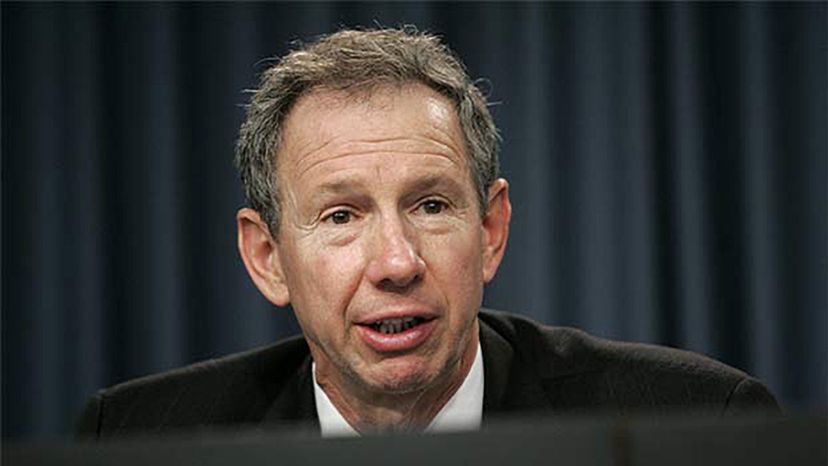
Our primitive ancestors spread from east Africa to all over the planet, and since then, we've never stopped moving. We're running out of fresh territory on Earth, so the only way to meet this ancient urge is to find somewhere new to go — whether it's making brief jaunts to the moon as a tourist, or signing up for an interstellar voyage that will take multiple generations.
In a speech, to the Bay Area Houston Economic Partnership, former NASA administrator Michael Griffin differentiated between "acceptable reasons" and "real reasons" for space exploration. Acceptable reasons would be issues like economic benefit and national security. But real reasons include concepts like curiosity, competitiveness and monument-building.
"Who among us does not know the wonder and mystery and awe and magic of seeing something, even on television, never seen before, an experience brought back to us by a robotic space mission?" Griffin added that "when we do things for real reasons as opposed to acceptable reasons, we produce our highest achievements."
1: We May Need to Colonize Space to Survive
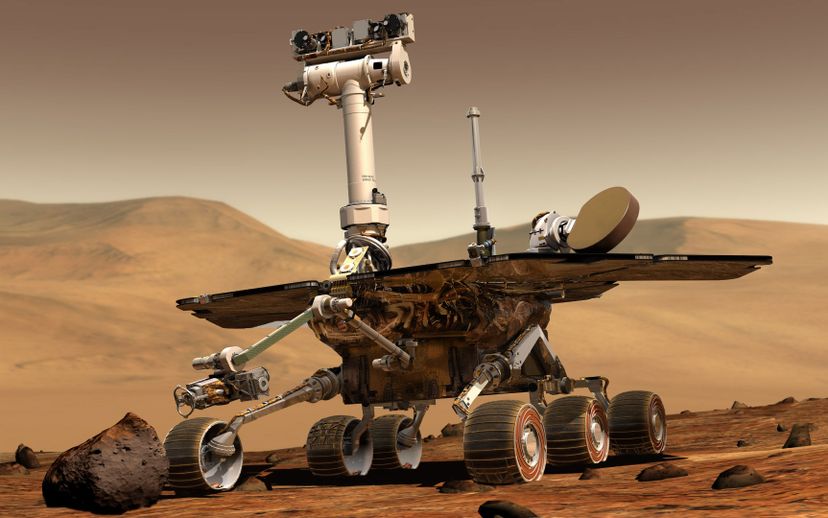
Already, our ability to put satellites in space is helping us to monitor and combat pressing problems on Earth, from forest fires and oil spills to the depletion of aquifers that people depend upon for drinking water [source: Fowler].
But our burgeoning population, rampant greed and thoughtlessness about environmental consequences have already done pretty severe damage to our planet. According to a 2012 survey of research, most scientists estimate that Earth has a carrying capacity of between 8 and 16 billion — and we already have a population of nearly 8 billion [source: UNEP]. That's led some futurists to argue that we should be preparing to colonize another planet, and soon. Your life — or those of your descendants — might depend upon it.
Originally Published: Oct 31, 2014
Why Space Exploration Matters FAQs
Why is space exploration important?
Humans have always been curious to find hidden mysteries of the universe that lie far beyond our Earth. How was Earth formed? Is there life outside planet Earth? How big is the universe? All these and many more questions are still unanswered and we will only find their answers by exploring space. Addressing these challenges helps humans develop new technologies, make new innovations and reconstruct scientific expedition to a whole new level.
What are the cons of space exploration?
One of the major cons of space exploration is exposure to harmful radiation. While in space, astronauts are prone to experience galactic cosmic radiations that are 10 times more dangerous than radiation on Earth. Cost is another significant negative to exploring space. NASA's 2021 fiscal year budget is $23.3 billion. Space exploration also creates a ton of space junk.
How has space exploration benefited health and medicine?
Space exploration and NASA specifically has can claim credit for a several medical innovations, including ear thermometers, automatic insulin pumps, implantable heart defibrillators and improvements in digital mammography technology. Other innovations include laser angioplasty, voice-controlled wheelchairs and programmable pacemakers.
How is space exploration important for national security?
Even if the U.S. privatizes much of space exploration, it still wants to ensure that companies can mine the moon or asteroids without worrying that interlopers will usurp their claims or steal their production. That's why it's crucial to back up diplomacy with a NASA spacefaring capacity that could be converted to military use, if needed.
What resources can we get from space?
Space is believed to hide valuable substances such as gold, platinum and silver. It's only with space exploration that humans can amass these valuable raw materials. For example, the moon contains lucrative sources of a rare gas helium-3, which costs around $5,000 per liter.
Lots More Information
Author's Note: 10 Reasons Why Space Exploration Matters to You
I was a child in the 1960s, a time when many of us believed that someday we would be flying off into the cosmos in search of adventure. I can't say precisely when that dream ended for me, but I remember that back in the mid-1990s, the British folk singer Billy Bragg recorded a song that seemed to capture some of what I felt. In "The Space Race is Over," Bragg sang of staring at the moon as a child, and dreaming that night of walking on the Sea of Tranquility.
But decades later, he stood staring at the same sky with his young son, who asked him, "Why did they ever go?" As Bragg lamented, "The space race is over, and I can't help but feel that we're all just going nowhere." Despite the beauty of his lyrics, I must differ with him respectfully on that last point. I continue to believe that humanity still has a chance to become a truly spacefaring race, and that we must find a way to do so.
Related Articles
- Stunning Webb Images Show Clearest Look at Cosmos Ever
- NASA Inventions You Might Use Every Day
- 10 Space Landmarks We'd Like to Visit
- How to Build a Better Space Explorer
Sources
- Austen, Ben. "After Earth: Why, Where, How, and When We Might Leave Our Home Planet." Popsci.com. March 16, 2011. (July 4, 2022) http://www.popsci.com/science/article/2011-02/after-earth-why-where-how-and-when-we-might-leave-our-home-planet
- Bragg, Billy. "The Space Race is Over." Genius.com.. 1996. (Sept. 14, 2014) https://genius.com/Billy-bragg-the-space-race-is-over-lyrics
- Colucci, Lamont. "America Must Retake Lead in Space Exploration." Usnews.com. Dec. 11, 2012. (July 4, 2022) http://www.usnews.com/opinion/blogs/world-report/2012/12/11/america-must-retake-lead-in-space-exploration
- DART. "Double Asteroid Redirection Test. " Jhuapi.edu. (July 4, 2022) https://dart.jhuapl.edu/
- Dvorsky, George. "NASA's Artemis Moon Landing Program: Launches, Timeline, and More." Gizmodo. May 14, 2022. (July 4, 2022) https://gizmodo.com/nasa-artemis-program-moon-landing-launch-dates-1848906821
- Fowler, Wallace. "Anniversary Shows Us that NASA and Space Exploration are Worth Their Costs." Utexas.edu. July 21, 2014. (July 4, 2022) http://www.utexas.edu/know/2014/07/21/anniversary-shows-us-that-nasa-and-space-exploration-are-worth-their-costs/
- Government Accountability Office. "Actions Needed to Improve Transparency and Assess Long-Term Affordability of Human Exploration Programs." Gao.gov. May 2014. (July 4, 2022) http://www.gao.gov/assets/670/663071.pdf
- Independent. "50 years, 50 giant leaps: How Nasa rocked our world." Independent. July 29, 2008. (July 4, 2022) http://www.independent.co.uk/news/science/50-years-50-giant-leaps-how-nasa-rocked-our-world-879377.html
- Griffin, Michael. "The Real Reasons We Explore Space." Air & Space Magazine. July 2007. (July 4, 2022) https://www.smithsonianmag.com/air-space-magazine/the-real-reasons-we-explore-space-18816871/
- Howell, Elizabeth. "International Space Station: Facts, History & Tracking." Space.com. Oct. 12, 2021 (July 4, 2022) https://www.space.com/16748-international-space-station.html
- Howell, Elizabeth. "NASA's James Webb Space Telescope: The ultimate guide." Space.com. June 26, 2022. (July 4, 2022) https://www.space.com/21925-james-webb-space-telescope-jwst.html
- Jet Propulsion Laboratory. "20 Inventions We Wouldn't Have Without Space Travel." Jpl.nasa.gov. May 20, 2016. (July 4, 2022) https://www.jpl.nasa.gov/infographics/20-inventions-we-wouldnt-have-without-space-travel
- Kharpal, Arjun. "China plans to send its first crewed mission to Mars in 2033 and build a base there." June 24, 2021. (July 4, 2022) https://www.cnbc.com/2021/06/24/china-plans-to-send-its-first-crewed-mission-to-mars-in-2033.html
- Kiger, Patrick J. "Innovations Aboard the ISS." Nationalgeographic.com. March 2014. (July 4, 2022) https://web.archive.org/web/20140306205041/http://channel.nationalgeographic.com/channel/live-from-space/articles/innovation-and-the-iss/
- Kramer, Miriam. "Want to Find Alien Life? It Will Take A Lot of Luck." Space.com. May 26, 2014. (July 4, 2022) http://www.space.com/25999-alien-life-search-tools-luck.html
- Kueter, Jeff and Sheldon, John B. "An Investment Strategy for National Security Space." Heritage Foundation. Feb. 20, 2013. (July 4, 2022) https://www.heritage.org/space-policy/report/investment-strategy-national-security-space
- Kennedy, Courtney and Lau, Arnold. "Most Americans believe in intelligent life beyond Earth; few see UFOs as a major national security threat." June 30, 2021 (July 4, 2022) https://www.pewresearch.org/fact-tank/2021/06/30/most-americans-believe-in-intelligent-life-beyond-earth-few-see-ufos-as-a-major-national-security-threat/
- Letzter, Rafi. "There's too much gold in the universe. No one knows where it came from." Live Science. Oct 1, 2020. (July 4, 2022) https://www.livescience.com/where-did-gold-come-from.html
- Mann, Adam. "NASA's first planetary defense mission will nudge an asteroid." Science. Nov. 18, 2021. (July 4, 2022) https://www.science.org/content/article/nasa-s-first-planetary-defense-mission-will-nudge-asteroid
- Minter, Adam. "The Asteroid-Mining Race Begins." Bloombergview.com. Sept. 8, 2014. (July 4, 2022) http://www.bloombergview.com/articles/2014-09-08/the-asteroid-mining-race-begins
- NASA. "International Space Station Benefits for Humanity" 2018. (July 4, 2022) https://www.nasa.gov/sites/default/files/atoms/files/iss_benefits_for_humanity_3rded-508.pdf
- NASA. "NASA Selects Companies to Collect Lunar Resources for Artemis Demonstrations. " Nasa.gov. Dec. 3, 2020. (July 4, 2022) https://www.nasa.gov/press-release/nasa-selects-companies-to-collect-lunar-resources-for-artemis-demonstrations
- NASA. "Near Earth Object Program." Nasa.gov. Sept. 15, 2014. (July 4, 2022) https://cneos.jpl.nasa.gov/
- NASA. "Space Shuttle Program: Spanning 30 Years of Discovery." Nasa.gov. (July 4, 2022) http://www.nasa.gov/mission_pages/shuttle/main/index.html
- National Space Society. "Position Paper: Protecting Earth from Cosmic Impacts." Nss.org. February 2014. (July 4, 2022) https://space.nss.org/wp-content/uploads/NSS-Position-Paper-Planetary-Defense-2014.pdf
- National Public Radio. "'Space Chronicles': Why Exploring Space Still Matters." Npr.org. Feb. 27, 2012. http://www.npr.org/2012/02/27/147351252/space-chronicles-why-exploring-space-still-matters
- Ouellette, Jennifer. "This Moon was Made for Mining (Helium-3)." Discovery News. Feb. 21, 2011. (July 4, 2022) https://www.seeker.com/this-moon-was-made-for-mining-helium-3-1765179658.html
- Shepherd, Christian. "China plans crewed missions to Mars by 2033. " Financial Times. June 24, 2021 (July 4, 2022) https://www.ft.com/content/565783e3-e616-436c-a626-70ca106da78c
- SpaceRef. "Space Exploration: Real Reasons and Acceptable Reasons." Spaceref.com. Jan. 27, 2007. (July 4, 2022) http://www.spaceref.com/news/viewsr.html?pid=23189
- Torchinsky, Rina. "Elon Musk hints at a crewed mission to Mars in 2029. " National Public Radio. March 17, 2022. (July 4, 2022) https://n.pr/3yFZr5X
- UNEP. "One Planet, How Many People? A Review of Earth's Carrying Capacity." Unep.net. June 2012. (July 4, 2022) http://na.unep.net/geas/archive/pdfs/GEAS_Jun_12_Carrying_Capacity.pdf
- United States Space Force. "United States Space Force History." Spaceforce.mil. (July 4, 2022) https://www.spaceforce.mil/About-Us/About-Space-Force/History/
- Wall, Mike. "December Test Flight Huge for NASA's Next Manned Spacecraft." Space.com. June 19, 2014. (July 4, 2022) http://www.space.com/26291-nasa-orion-capsule-test-flight.html
Source: https://science.howstuffworks.com/10-reasons-space-exploration-matters.htm
0 Response to "Should We Continue the Space Program"
Post a Comment